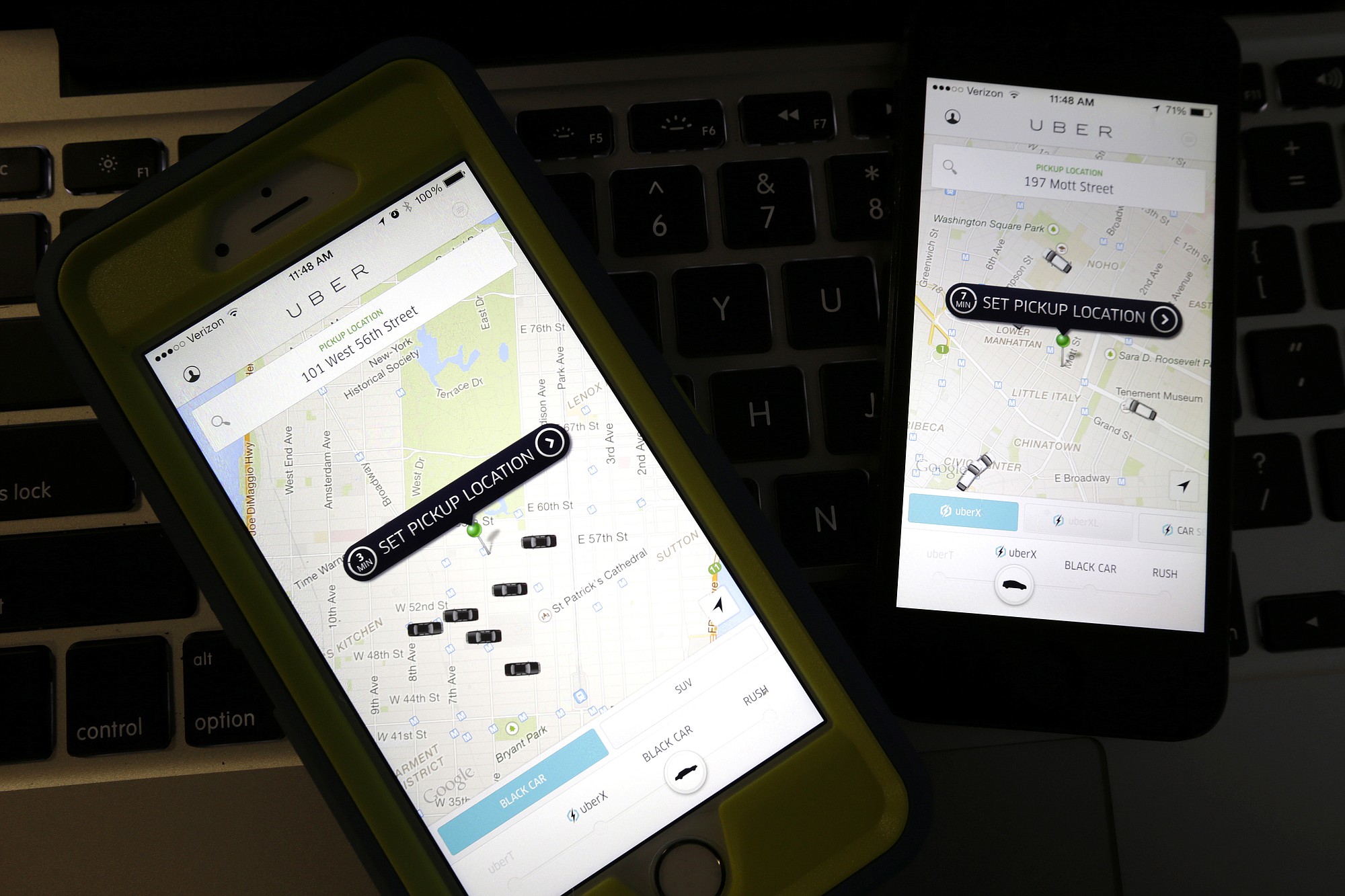More information
oUber insurance
oMetromile
oWhosdrivingyou
oWashington Senate Bill 5550
Drivers who are considering a job with a transportation network company should be sure to do their homework on auto insurance needs, according to local insurance agents and critics of ride-sharing services.
While the surge of new technology is creating never-before-seen services, such as ordering a ride with the push of a button on your smartphone, regulators of the transportation industry have been playing catch-up.
And there has been a lot of concern about a potential lapse in auto insurance coverage for drivers who use their personal vehicles to pick up passengers for pay.
The biggest concern is whether a driver is covered when he or she is available for service but hasn’t yet logged a passenger.
In the case of Uber, this is when drivers turn on their smartphone app to let users know they are available to give rides. Riders download the app, let Uber locate them by GPS, and request a ride from the nearest driver. Riders can type in their address and destination and get a quote online. Passengers pay for the ride and the tip through their Uber account.
Local insurance agents say, if you’re using your car to earn money, you need coverage to match.
“Whenever you start getting into your situation where you’re using your vehicle for monetary gain you need to switch over to a commercial policy,” said Kevin Cook, an agent with Bryant Associates in Vancouver.
Uber, the ride-sharing service that launched over the summer in Vancouver, has a $1 million liability insurance policy that covers drivers, riders and third parties from the moment a trip is accepted to the moment a person is dropped off.
But there is concern in the industry about the time that a driver is available to pick up rides — when they turn on the app — but hasn’t accepted a trip. Local insurance agents said most personal auto insurance would not cover a claim that occurred during that time.
“Right now that’s a real shade of gray,” said Dave Waller, president of Waller Insurance. “You may have coverage or you may not.”
Uber does provide back-up liability insurance for this in-between time, but only after a driver’s insurance denies the claim.
Critics argue holes in the coverage could leave drivers in a tough financial spot or at risk of losing their auto insurance.
“Basically, they’ve transferred this risk onto drivers,” said Dave Sutton, spokesman for Who’s Driving You, an anti-Uber safety initiative launched by the Taxicab, Limousine and Paratransit Association.
But Uber contends it is in line with state policy, and a new service by Metromile launched this month in Washington, California and Illinois could be helping to close any gaps. The company is offering per-mile coverage to Uber drivers by tracking which miles are personal and which are ride-share.
“Thus far, personal auto insurance hasn’t traditionally included coverage for anyone using their car for ride-share (or livery) services,” Metromile says on the company’s blog. “That’s old-world thinking though — when no one could imagine a time where a personal vehicle could also be successfully employed for, essentially, commercial use (i.e. as a cab). No one can deny the rapid pace of innovation across industries today. Ultimately, it’s the consumer who experiences any imbalances when adjacent services and products don’t keep pace within their ecosystem.”
Metromile claims their coverage could mean savings for drivers who log a lot of ride-share trips.
“Metromile customers who drive less than 10,000 personal miles a year are saving 40 percent (to) 50 percent on insurance premium,” the company states.
Brooke Steger, general manager of Uber in Seattle, said the company worked with the city of Seattle to ensure drivers would be insured.
“The drivers won’t have to change their policy in any way,” she said.
Uber’s policies are now used throughout the state of Washington. But lawmakers are considering a bill — Senate Bill 5550 — that would force additional regulations and insurance requirements on the company and other ride-share service providers.



